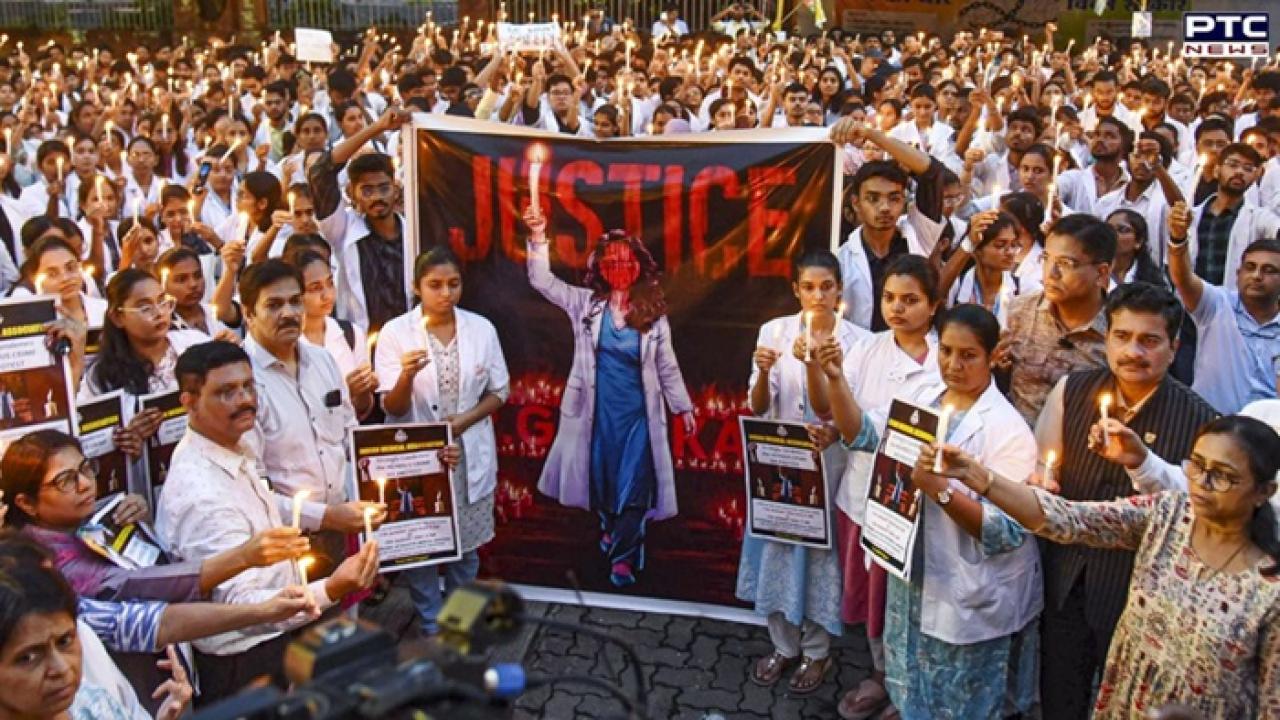

Kolkata doctor murder: Mamata Banerjee govt tables 'Aparajita Bill'; here's all you need to know about it
Kolkata doctor murder: The West Bengal government on Tuesday introduced the Aparajita Woman and Child (West Bengal Criminal Laws Amendment) Bill. The bill seeks to improve protection for women and children by amending and establishing new rules regarding r@pe and sexual offences.
The bill was tabled by Law Minister Moloy Ghatak on the second day of the special Assembly session on September 3.
- The bill calls for capital punishment within 10 days after a r@pe conviction if the victim passes away or goes vegetative.
- According to the bill, those convicted of r@pe or gang-r@pe would be sentenced to life in prison for the rest of their natural lives.
- The bill also proposes amending the recently passed Bharatiya Nyay Sanhita 2023, Bharatiya Nagarik Suraksha Sanhita 2023, and the Protection of Children from Sexual Offences Act 2012 "in their application to the state of West Bengal to enhance punishment and to constitute the framework for expeditious investigation and trial of the heinous act of violence against women and children."
- The bill seeks to change sections 64, 66, 70(1), 71, 72(1), 73, 124(1), and 124 (2) of the BNS of 2023, which extensively address punishment for rape, rape and murder, gang-rape, repeat offenders, disclosure of victim identity, and even causing harm by the use of acid, among other matters.
- It also suggests the omission of sections 65(1), 65(2), and 70(2) of the aforementioned Act, which deal with punishments for rape perpetrators under the ages of 16, 12, and 18, respectively.
- The proposed Bill's statement of purpose offers "to create a safer environment for women and children" in the state. "It is a testament to the State's unwavering commitment to uphold the fundamental rights of its citizens, particularly women and children, and to ensure that heinous acts of rape and sexual offences against children are met with the full force of the law".
- Legal experts state the West Bengal government's decision to introduce an anti-rape bill in the state Assembly is constitutionally sound, but it will need presidential approval to become law.
- Any change proposed by the state would punishments incompatible with those provided by the New criminal laws of Bharatiya Nyaya Sanhita (BNS) and Bharatiya Nagarik Suraksha Sanhita (BNSS), necessitating presidential consent under Article 254(2) of the Constitution.
- Article 254(2) authorises a state legislature to make legislation that contradicts a central law on a concurrent list issue, but only if the state's law wins presidential assent. This means that state law will have precedence in that state, even if it differs from central law, as long as it has been approved by the President.
- PTC NEWS
